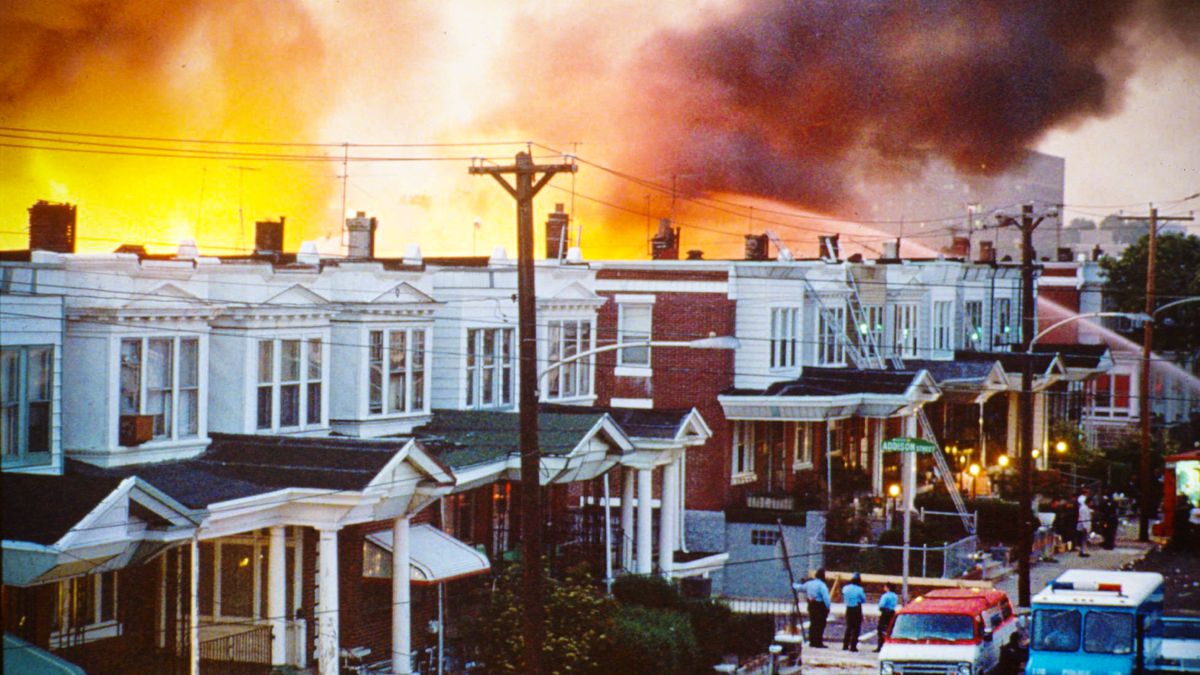MOVE: The tragedy that did not change Philly
I am preparing myself for the orgy of guilt and finger-pointing that will lead up to the 35th anniversary of the MOVE tragedy in which 11 people, including five children, died and more than 60 homes were destroyed on West Philadelphia’s Osage Avenue.

To better understand May 13, 1985, turn back to Aug. 8, 1978, when Police Officer James Ramp was killed when police moved in to evict MOVE from a building it had occupied. MOVE described itself as a back-to-nature group that was Marxist in political orientation, and moving toward violence. It was both black liberation and animal liberation.
“Only 15 months earlier during a nine-hour standoff with police, 18 MOVE members, in tan fatigues and black berets, brandished rifles and handguns on the parapet at the MOVE compound, a twin house illegally taken over at 33rd and Pearl streets,” Kitty Caparella reported for the Daily News.
In 1978, MOVE was moved and several members went to jail for Ramp’s death.
MOVE relocated to Osage Avenue and almost immediately began bothering the hell out of neighbors with political harangues and obscenities blared over loudspeakers day and night. The property was trash-filled, unsanitary, rats were encouraged, and ultimately a bunker was constructed on the roof, without the proper permits.
What followed was a tragedy, perhaps avoidable, perhaps not.
In some accounts I have read some blarney about how the destruction “changed the fabric of Philadelphia forever.”
No it didn’t.
The man who called the shots, or neglected to, Mayor W. Wilson Goode was re-elected three years later, even winning the division that contained Osage Avenue.
I’ll bet no more of you would recognize May 13, than you would April 19, 1995, in which 168 Americans died. That was the Oklahoma City bombing by native-born terrorists. In Philly, the terrorists were the city government.
Goode accepted blame for what happened. He should, because he was the mayor and he did not come to the scene. He allowed the lawless situation on Osage to fester.
Police Commissioner Gregore Sambor deserves blame for a busted scheme that was supposed to blow a hole in the bunker to allow tear gas to be inserted. Residents of the block were evacuated the night before.
Fire Commissioner William Richmond is to blame for not following his instincts and putting the fire out. He faced two problems — gunfire from the house, and Sambor thought the fire would flush out those inside.
Finally, the MOVE radicals themselves. They wanted the confrontation. After months of inertia, and being deluged by complaints from neighbors, Goode finally ordered MOVE to be removed.
''There was no way to avoid it. No way to extract ourselves from that situation except by armed confrontation,” Goode said. Maybe yes, maybe no.
Sambor had arrest warrants for four MOVE members, and ordered them to come out.
“The MOVE people refused all overtures of family, friends and clergy to mediate and to attempt to talk them into coming out,” Sambor said.
“This is America,” he told them over a bullhorn. “You have to abide by the laws of the United States.”
Not them, and gunfire erupted.
Do I hear some of you saying I am blaming the victim?
No, I am blaming the instigators, and then the city’s bungled response.
Am I missing something?
How can I write about the MOVE tragedy without mentioning race, the savage dividing line of American society?
OK — MOVE was African-American. The mayor who gave the orders was African-American. The city managing director who saw that the orders were carried out, Leo Brooks, was African-American. The fire and police commissioners were white.
The operation, which included 500 cops who fired 10,000 bullets during the siege, was conducted in the open, in the view of the media.
Could anything like that happen to white people?
Another date: Aug. 21, 1992. The U.S. Marshals Service attacked a compound in Ruby Ridge, Idaho, to serve warrants for failure to appear on gun charges. A marshal, a woman and a teenage boy were killed. Those in the compound were white.
In Philadelphia, City Council is working on some sort of proclamation to mark the sad 35th anniversary.
An expression of regret ought to do it. The shorter the better.



